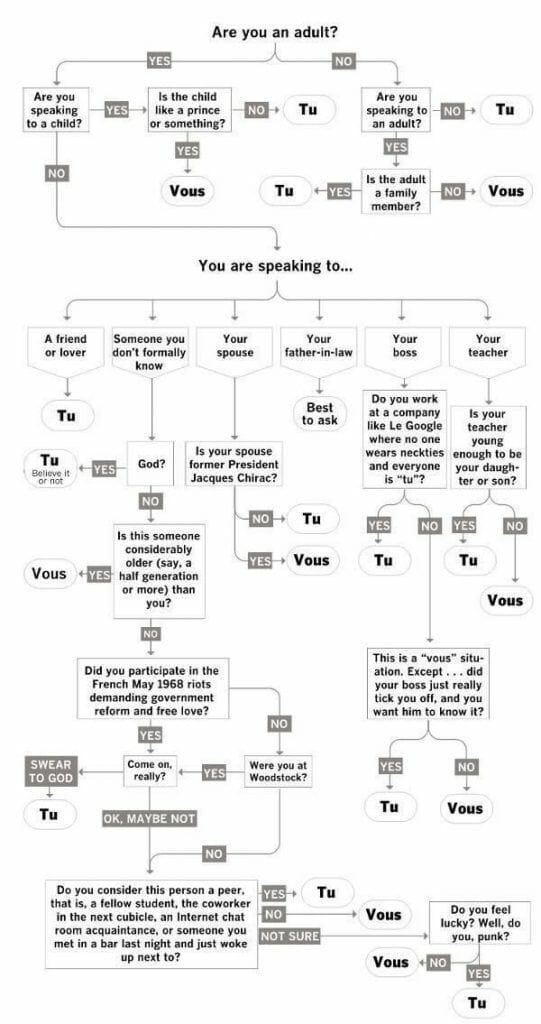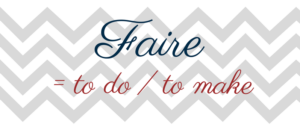Mes chers etudiants (my dear students) , today I want to address a challenge that many of you have shared with me: how to understand spoken French, especially when you’re in France. I know that a lot of you have felt puzzled during your trips to the Hexagon (nickname of France), struggling to grasp the intricacies of spoken language. But fear not, you’re not alone in this linguistic journey. Together, we’ll unravel the reasons behind this challenge and explore practical ways to overcome this pivotal aspect of your learning journey.
1.The Speed of Spoken French: A Linguistic Sprint
Imagine yourself in a bustling market where vendors shout their offers at the top of their lungs. This is somewhat akin to the experience of language learners facing the speed of spoken French. Words whizz by like lightning, creating a linguistic whirlwind that’s hard to decipher. Liaisons, those seamless connections between words, add another layer of complexity.
Examples of Liaisons:
- “Les amis” (the friends) becomes “Lézamis”
- “Pas encore” (not Yet) becomes “Pazencore”
- “A Tout à l’heure” (see you Later) becomes “Toutal’heure”
Tip: Start with slowed-down audio sources and gradually move to normal speeds. Regular practice will sharpen your linguistic reflexes.
2. Understand Spoken French Expressions
French speakers are known for their use of idiomatic expressions and lively slang. It’s like discovering a secret language within a language, where each expression adds its own unique charm to conversations.
In France, there are numerous idiomatic expressions that are an integral part of the spoken language. Here are four expressions among the most commonly used:
- “C’est pas grave” : This expression translates literally to “It’s not serious” in English. It’s often used to downplay the significance of a situation, reassure someone, or ease tensions. It’s a casual way of saying that everything is fine despite the circumstances.
- “Ça marche” : This expression can be translated as “That works” in English. It’s used to confirm an agreement, understanding, or plan. It’s an informal way of saying “okay” or “got it” in a relaxed context.
- “Avoir la pêche” : This expression literally means “To have the peach,” but it’s better translated as “To be in high spirits” in English. It’s used to describe someone who is in a good mood, energetic, and positive. It’s a vivid expression that evokes the image of a person full of energy and vitality.
- “Ça roule” : This expression can be translated as “It’s rolling” or “It’s going smoothly” in English. It’s a casual way of expressing that everything is going well or that things are on track.
Tip: Immerse yourself in texts, films, and series to become acquainted with these expressions. Soon, you’ll have your own collection of linguistic treasures.

3. Nasal Sounds: Adding a Unique Resonance to French
Nasal sounds in spoken French can appear a bit challenging to pronounce at first, especially for those who are not familiar with them. However, with practice and patience, most learners can gradually master them. It’s simply a matter of adjusting how you position your tongue and mouth while allowing a bit of air to pass through the nose.
For some learners, nasal sounds might seem unfamiliar initially, but they are a natural aspect of French phonology. The key is to practice regularly by listening to native speakers, repeating the sounds, and working on the coordination between the mouth and the nose.
Remember that learning a new language often involves pronunciation challenges, but with consistent practice and attentive listening, nasal sounds will become increasingly familiar and easier to pronounce.
Examples of Nasal Sounds:
- [ã] – This nasal sound is often represented by the letter “an” or “en” in words. For example, the word “pain” (bread) is pronounced with a nasal sound, like “pã.”
- [ɛ̃] – This nasal sound is commonly represented by the letter “in” or “un” in words. For instance, the word “vin” (wine) is pronounced with a nasal sound, like “vɛ̃.”
Tip: With practice, you’ll not only master these sounds but also enrich your linguistic repertoire
4. Vous vs Tu
When engaging in spoken French, understanding and appropriately using the various levels of politeness and formality is crucial for effective communication. French culture places a strong emphasis on respect and social etiquette, which is reflected in the language’s intricate system of addressing others. Let’s explore the nuances of politeness and formality in spoken French.
- Tutoiement and Vouvoiement
In French, there are two main ways to address someone: “tutoiement” and “vouvoiement.” “Tutoiement” involves using the informal “tu” pronoun, while “vouvoiement” employs the formal “vous” pronoun. The choice between these two forms depends on the relationship, context, and social hierarchy.
- Tutoiement: This is used among friends, family members, and peers. It signifies familiarity and a close relationship. However, it’s important to note that even close relationships can sometimes require formality in certain situations.
- Vouvoiement: The formal “vous” is used when addressing strangers, acquaintances, superiors, and in professional settings. It conveys respect and maintains a certain distance.

Tip: if you are not sure which pronum to use in spoken French, it’s generally safer to default to using the formal “vous” pronoun.
Ready to embark on your journey to mastering spoken French? Join our French learning community today and unlock a world of linguistic possibilities.





